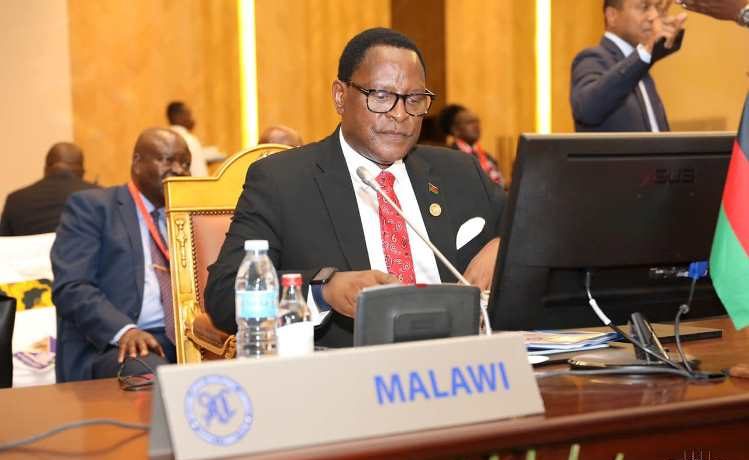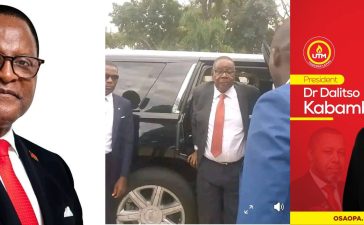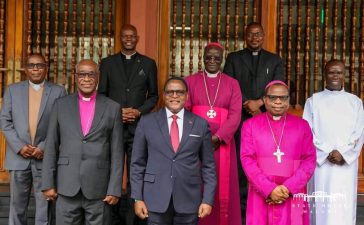In a welcome turn of events for Finance Minister Simplex Chithyola and the Chakwera administration, a ray of financial sunshine has emanated from Washington, the United States of America. The latest development from the hallowed halls of the World Bank headquarters brings good tidings for Malawi, as the Board of Executive Directors has given the nod to a $60 million grant from the International Development Association (IDA). This grant opens the gateway for Commercial Banks in Malawi to access an imports backstopping facility, marking a significant step towards securing the nation’s critical supplies. The approval, received just yesterday, signals a positive stride in fortifying Malawi’s economic resilience.
What this means is that “the contingent financing to import fertilizers and pharmaceuticals will address critical shortages in the market which, if left unaddressed, have the potential to hinder Malawi’s economic recovery”, reads in part the statement from the World Bank.
According to the statement, the project, De-risking Importation of Strategic Commodities (DISC), will establish a foreign currency trade facility for Malawi’s commercial banks. Specifically, the project provides backstopping support on the payment obligations of local issuing banks to their correspondent banks, targeting the import of fertilizers and pharmaceuticals.
“Currently, correspondent banks lack confidence to extend letters of credit to banks in Malawi due to the high-risk profile of local banks. The proposed facility will therefore provide correspondent banks with the assurance that the World Bank, standing behind the Reserve Bank of Malawi (RBM), will assume the payment obligations of the local issuing banks in the unlikely event that local banks default on their payment obligations for essential commodities,” reads the statement.
On his part, Hugh Riddell, World Bank Country Manager for Malawi said that “The DISC project aims to support economic recovery in Malawi with a specific focus on the private sector. The project complements the government-led macro-fiscal reforms under implementation and aims to restore the long-term functioning of markets.”
According to the statement, this three-year project builds upon existing World Bank, International Finance Corporation (IFC), and Government of Malawi programs on enhancing access to trade finance, including the Global Trade Finance Program (GTFP), and lessons learned from prior projects, including the Financial Inclusion and Entrepreneurship Scaling Project (FINES).
The project will also help local financial institutions establish working partnerships with correspondent banks and increase their credit lines and reduce cash collateral requirements, eventually enabling the continued flow of trade credit into the market at a time when imports are critical.
Commenting on this development, the Minister of Finance and Economic Affairs Simplex Chithyola Banda had this to say:
“We are trying to restore stability in the macro-economic situation with a view to revive the wider economy. The stable importation of strategic commodities is a critical element of our recovery. We have requested the World Bank for this project to boost confidence in our local commercial banks and we are therefore very optimistic this operation will create a timely mechanism, alongside the recently agreed Extended Credit Facility with the International Monetary Fund (IMF), to ensure continuous availability of life saving and agricultural commodities.”
The Ministry of Finance and Economic Affairs will represent the Government of Malawi in signing the financing agreement with a deferred drawdown option, while the Reserve Bank of Malawi (RBM), will be the main implementing agency for this operation.
The World Bank’s International Development Association (IDA), established in 1960, helps the world’s poorest countries by providing grants and low to zero-interest loans for projects and programs that boost economic growth, reduce poverty, and improve poor people’s lives. IDA is one of the largest sources of assistance for the world’s 74 poorest countries, 39 of which are in Africa. Resources from IDA bring positive change to the 1.3 billion people who live in IDA countries. Since 1960, IDA has provided $458 billion to 114 countries. Annual commitments have averaged about $29 billion over the last three years (FY19-FY21), with about 70 percent going to Africa.













